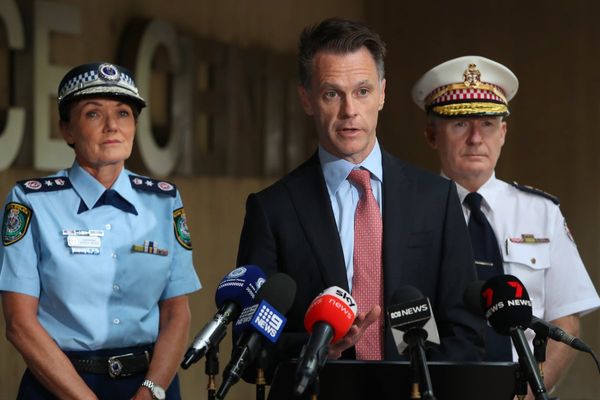WASHINGTON — President Joe Biden insists he can work from a clean slate with Mitch McConnell when they convene for their highly anticipated White House meeting on Wednesday and that a bipartisan infrastructure deal is still possible.
But while the year’s first assembly of congressional leaders in the Oval Office will draw immense attention and the customary photo-op, it is already being clouded by low expectations.
Despite Biden’s best intentions, many in his own party believe McConnell’s history of cold-blooded opposition to Democrats’ agenda means he can’t be trusted. At the same time, Republicans increasingly see Biden as a captive of the left, with less political incentive to compromise by the day.
“Biden shouldn’t be wasting any of his time speaking with McConnell,” said Rahna Epting, executive director of the liberal activist group MoveOn.org. “Republicans have shown their cards.”
At the top of the agenda will be Biden’s $2 trillion infrastructure proposal, which he has signaled he is willing to trim the cost of and change his plan to pay for it so long as taxes are not raised on individuals making under $400,000 a year. Biden’s goal is to find areas of mutual agreement in the meeting, a White House spokesperson told McClatchy, including on competition with China, veterans’ care and elements of infrastructure to use as a starting point.
It’s no secret where the two men stand on the broad outline of Biden’s infrastructure proposal. The Wednesday meeting merely represents their first opportunity to deliver their cases face-to-face, with Senate Majority Leader Chuck Schumer, House Speaker Nancy Pelosi and House GOP Leader Kevin McCarthy also in attendance.
“I imagine he will tell Biden that where Democrats are in terms of spending and taxes is not even in the same universe as where most Republicans are,” said Scott Jennings, a Republican consultant who has advised McConnell. “And I expect he’ll tell the president what could attract bipartisan support, and most certainly will not.”
McConnell has been specific about what Republicans could support, noting in a weekend TV interview with Kentucky Educational Television that the “proper price tag” for infrastructure is between “$600 and $800 billion” — roughly a third of the cost of Biden’s plan, which combines spending on areas that meet the traditional definition of infrastructure and services Democrats say are vital to infrastructure like child care.
The price tag of the package, what qualifies as infrastructure and how to pay for it all are all areas of disagreement. Even if Biden was willing to come down on the total cost by cutting agenda items that Republicans dispute are infrastructure, the two parties’ are still far apart on how to fund the new roads, bridges and broadband internet.
McConnell is firmly opposed to corporate tax increases in Biden’s proposal and said he wants to use the existing gas tax and potentially impose new fees to pay for such a package.
“The best way to pay for infrastructure is with the people who use it,” he told KET.
Biden has already rejected that approach. White House press secretary Jen Psaki has insisted that Biden’s “line in the sand” is raising taxes on people making under $400,000 annually, which new user fees would hit. The Biden administration wants to raise the corporate tax rate from 21% to 28% to pay for the bulk of its proposals.
“The president’s view is that he’s ready to have a clean slate, and let’s welcome the leaders here,” Psaki said at a Friday press briefing.
Zac Petkanas, a Democratic strategist and senior adviser to a group outside the White House that was founded to help boost Biden’s agenda called Invest in America, said that by meeting with McConnell, the president is fulfilling his commitment to bipartisanship.
“But bipartisanship is a two way street. It doesn’t just flow from the White House to Congress,” he said.
Petkanas said Republican plans would shift the tax burden to the middle class. “That is a poison pill that will kill any negotiation,” he added.
McConnell, who is always keenly attuned to delicate intraparty politics that could cause problems within his caucus, knows portions of his party’s base could recoil at another large spending bill at a time when the economy is climbing out of the pandemic recession.
“Anything in the bipartisan infrastructure department, we’re going to have to look very closely at that,” said Jessica Anderson, the executive director of Heritage Action, one of the leading conservative groups mobilizing to fight Biden’s agenda. “It depends on how it is paid for. Is it being paid for by cuts?”
Wednesday’s meeting falls at an awkward moment for GOP leadership, when House Republicans are on the verge of ousting Wyoming Rep. Liz Cheney from their leadership ranks for rebuking former President Donald Trump’s false claims that the 2020 presidential election was stolen.
While McConnell has previously defended Cheney, he has more recently declined to come to her defense, refusing to even utter her name when asked about her last week.
Instead, he declared last week that “100% of my focus is on standing up to this administration,” the latest indication to Democrats that he’s an unreliable negotiating partner. He later walked back that statement, saying he’s “anxious on stopping the Biden agenda -- depending what it is.”
“If McConnell was willing to go to the White House with good-faith proposals, I’ve seen no indication that the White House wouldn’t be receptive to that,” Petkansas said. “On the other hand, McConnell was out there saying that 100% — not 98% not 90% not 50% but 100% — of his focus is on trying to make the Biden administration fail.”
Jennings said no one should feign bewilderment that Republicans would oppose such a large spending proposal, especially because it includes hundreds of millions of dollars for items not traditionally defined as infrastructure.
“If the new administration is intent on pushing radical tax and spending proposals, along with liberal social programs, while calling it ‘infrastructure,’ then it doesn’t seem like there’s much of an interest in bipartisanship coming from the White House. They should expect Republicans to be 100% focused on stopping these ideas that please Bernie Sanders and other lefties the most,” he said.
For the moment, Biden enjoys a key advantage that could lead him to following his own instincts: He is more popular than almost any other major political figure.
The monthly Harvard-Harris poll showed he’s viewed 19 points more favorably than Schumer, and 31 points more favorably than McConnell.







